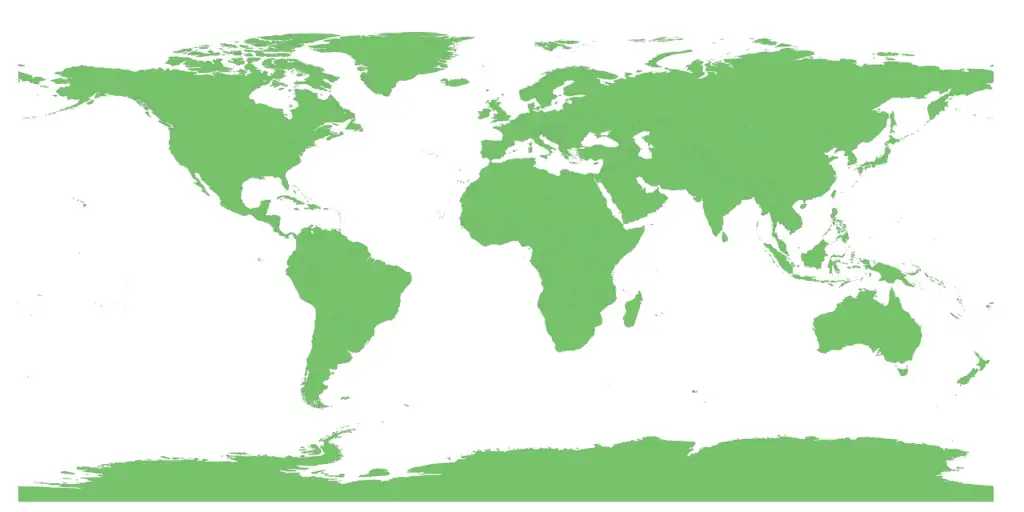What is the Biggest Agricultural Company in the US? (+Top 5)
If you have ever asked, “What is the biggest agricultural company in the US?”, you are not alone. I am […]
Read More »Become a successful marketing consultant: Learn more

If you are looking to another country to expand your sales and marketing efforts, you have come to the right place.
As you can imagine, there is a very long list of important decisions that need to be carefully considered when starting your international marketing plan.
What are the five most important decisions in international marketing?
The five most important decisions in international marketing are:
1. The international marketing mix
2. The culture
3. Legal and regulatory barriers
4. Local government rules
5. Selling your products and services
The first question an organization needs to consider before taking the next step in its international marketing strategy is “why market your products and services internationally?”
Fortunately, we addressed that and you are encouraged to review this tutorial as well:
International Marketing Strategies PDF (Free checklist)
Now, let’s get into the 5 most important decisions when developing your international marketing journey.
Tapping into the international market allows your business or organization to grow and scale into serving a larger customer base.
Many reasons drive an organization to go global, including market, cost, and competition.
Apart from the four P’s of the marketing mix (product, place, price, and promotion), there is a lot you need to consider and wisely implement before marketing to your chosen international market.
As we get started, you might already know we are huge proponents of the Law of 80/20 in marketing, where 80% of your results come from just 20% of your activities (vs 20% of your results come from 80% of your activities). In fact, this is how we chose these top 5 activities you will discover below, because they are the most important activities that will lead to 80% of your success. And when marketing your business internationally, the Law of 80/20 is equally as crucial.
Be sure to review the Law of 80/20 in marketing as it will help your entire process be much smoother and more productive:
How does the 80/20 rule apply to marketing? (Pareto Principle)

Let’s now review the top 5 most important decisions in international marketing:
In simple terms, the marketing mix is the blend of elements deployed simultaneously as a marketing strategy. Organizations can influence customers’ purchase decisions by strategically mixing different factors. Neil Borden came up with the term in 1953, which he used in his presidential address deployed in the American Marketing Association.
The marketing mix entails a blend of factors, including the four Ps’ which E. Jerome McCarthy introduced as the basis of marketing from a managerial approach. Through a systematic approach, marketers can eliminate the luck factor and replace it with carefully thought-out marketing strategies.
Price, place, promotion, and product lay a framework for marketing mix in both domestic and international marketing. This assists marketers in developing a full-proof marketing strategy and a successful launch.
One significant advantage is that you don't need to select all of them since they are just models. They act as a guide to planning your marketing strategy; however, employing the system is all up to you.
For more information about the Marketing Mix, go here:
What is the marketing mix and why is it important? | The 4 P’s of marketing
The international market opens up your business to a world of possibilities. How you navigate diverse cultures will determine whether your marketing strategy will float or sink. Your marketing should target different cultures on a global scale.
If your products or services don't meet the desires of different cultures in the international market, then you shouldn't partake. Presenting your marketing strategy should add value to the market, meaning it's crucial to possess intimate knowledge of the people in your targeted region.
You need to be willing to invest energy and time to understand what different cultures value for you to pursue an offshore venture. However, before exploring an international market, it's beneficial to ground yourself in your local market and learn what you can.
For more information about international marketing, go here:
The Advantages and Disadvantages of International Marketing (+benefits)
Before pursuing an offshore business, you need to be conversant with the laws and regulations of the region. It is strongly encouraged that you consult with professional legal for international business practices while still examining legal and regulatory obligations to detect risks that could provide obstacles for your company.
Don't compromise on the expense of getting foreign legal advice; it will end up saving you money in the long run.
Different countries have specific laws and regulations that you might not be privy to. For example, shipping laws and regulations can differ in some states. You need to be sure that the services or products you offer can reach their intended destination.
Here is a list of resources that will provide excellent information:
An excellent place to start are with these resources:
The local authorities' legality, stability, and integrity are crucial when assessing potential foreign economic ventures. Here are a few things to consider:
The integrity of contracts, employee rights, and security for protecting intellectual property, trademarks, and many other aspects of a business depends on a stable government. Before considering any international expansion, consult with "local" experts regarding business and political concerns.
Here are two very important resources that your International marketing systems need to be aware of as you get started:
The next step after selecting an international market is actual market entry. Your organization needs strategies on how to opt into the market and which foreign market entry option best fits the business. There are numerous alternatives for selecting a suitable entry approach.
As you get started, a freight forwarder and customs broker is very valuable resource at this phase, and can help you navigate properly:
Flexport: Digital Freight Forwarder and Customs Broker
Selling local goods abroad is known as exporting. It is a more straightforward and more popular entry option. Producing goods in one's native country and distributing or shipping them to another is exporting. There are two methods of export:
Philip Kotler defined some major entry options in exporting, and here they are;
A corporation has a fully functional export department to offer its goods in overseas markets. The department is in charge of looking for export prospects, marketing and promoting products, and carrying out all tasks associated with the export industry.
To service customers, several businesses open subsidiaries or stores in foreign marketplaces. All initiatives of the distribution and marketing of the business's products are within the purview of the branch manager.
Some businesses employ salespeople to find clients in overseas markets and provide for their needs. They supervise required procedures and order collection. They can assist in fostering relationships with international organizations, merchants, and customers.
Companies should hire agents, marketers, or intermediaries to enter overseas markets. They are in charge of managing all initiatives to market and sell the business's goods.
With this method, an organization establishes its factory overseas. The company does all its marketing and production activities offshore. However, this depends on several factors, for example, government policies, competition, production, and marketing costs. However, this should be carefully analyzed before you decide to partake.
It can be profitable to expand into unexplored international market waters.
It might, however, turn into a nightmare without proper research, planning and financial support. Along with the five previously mentioned aspects, more research should be conducted to affirm your knowledge of what to expect from international marketing.
Hopefully, this article will guide you in navigating foreign markets that make the most sense for your customer value proposition.
Sources